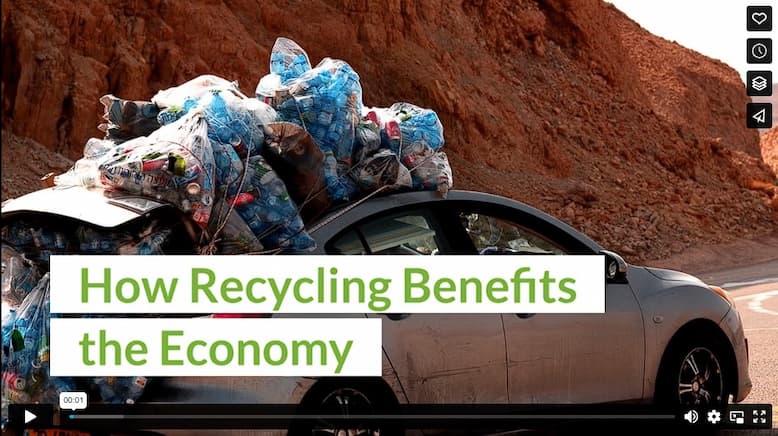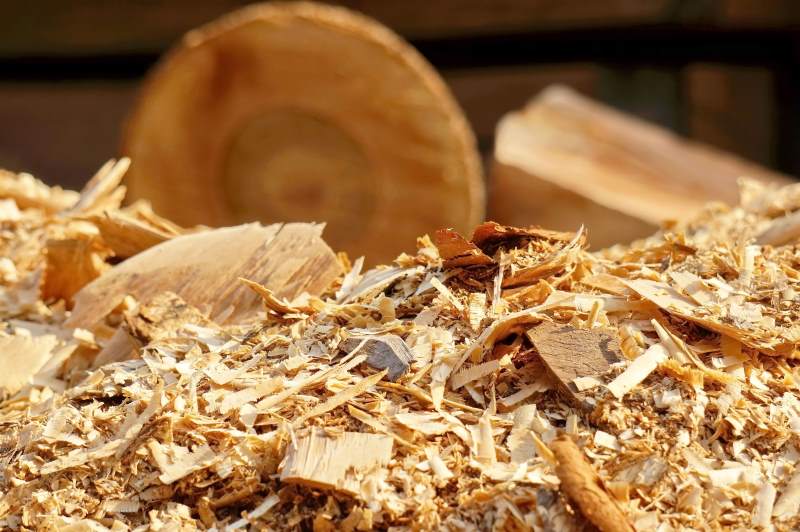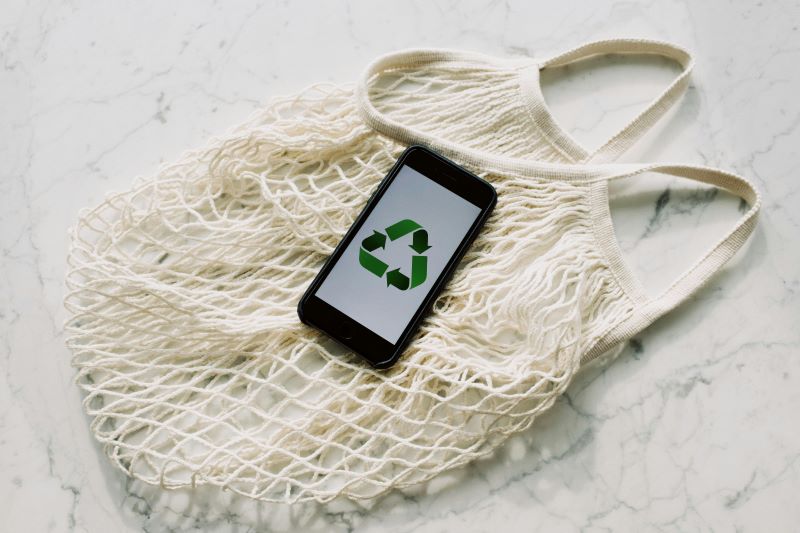What motivates people to do the things they do? Psychologists might tell you that a person’s motivation can fall anywhere along a whole spectrum of possibilities. The reason may be a selfish one that benefits only ourselves. At the other end of the spectrum are the noble and selfless pursuits we engage in because we feel we are “doing the right thing.” Our reasons for recycling can fall anywhere within this range.
We may recycle our old barbecue grill because we get money in return for the scrap metal. Our efforts literally line our wallets. Or we may choose to bring a reusable water bottle to work because we are concerned about microplastics harming marine wildlife. Whatever your reason, we can all agree on the abundance of benefits we reap from recycling, including cleaner air, clearer oceans, and fewer toxic dumps.
It is clear to see the environmental impact of recycling. Still, you may not be as aware of the benefits to the national and world economy that result from recycling efforts. Recycling has a genuine and tangible impact on the lives of individuals and families.
Material Conservation
We have a finite amount of natural resources. Fossil fuels take thousands of years to form deep within the earth, and the trees we harvest for lumber and paper take decades to grow. There is a limit to the number of trees we can cut down before we impact air quality, weather patterns, and drive species to extinction. The best course of action is to preserve our available resources by reusing them to the greatest extent possible, eliminating the need to harvest more.
Reusing resources is especially beneficial for countries that have limited natural resources at their disposal. Smaller countries often rely heavily on imported materials to manufacture products. These imported goods can be expensive and limit the country’s self-reliance. Suppose they can recycle those imported materials into new products and extend their useful life. In that case, they reduce their cost to manufacture, as well as their dependence on neighboring countries for materials.
Job Creation
The more products consumers recycle, the more demand they create for recyclers who can process those materials. An increase in the number of recycling plants needed to meet this demand, in turn, drives demand for skilled workers to staff the facilities. According to the United States Recycling Economic Information (REI), the labor force growth for recycling and reuse efforts is outperforming that for mining and waste management, indicating a shift away from mining or manufacturing new materials in favor of reusing old materials.
Contrary to what you might think, it often costs less to reuse materials than to create or acquire new materials. Aluminum is a prime example. This soft metal used in soda and beer cans can be recycled easily. The process requires less energy than producing new aluminum from mining ore. Recycling aluminum allows companies to cut their cost for the metal in half. These cost savings get passed on to the consumer in the form of lower prices.
Jobs impacted by an increase in recycling include more than just the facility that collects your curbside bin each week. Recycling creates jobs in glass and paper manufacturing, recycled materials sales, steel mills, and collection centers. Most recycling jobs created are located near large population centers where used materials are plentiful. The need for workers to fill these positions is growing worldwide.
Economic Stimulus
Recycling is a business that contributes to the growth and health of our economy. When we support companies that recycle materials or create new products from discarded ones, we create demand for the products and services. In the United States, 1.17 jobs are required to process every 1,000 tons of materials recycled. In 2012, recycling and reuse jobs constituted 681,000 jobs in the United States, accounting for 0.5% of all jobs in the economy. This number may seem small, but it is significant, especially as recycling efforts continue to grow and expand.
Rubber Recycling
Worldwide, tire and rubber recycling plants struggle to keep pace with the number of commercial and consumer waste tires produced each year. There is a growing need for recyclers to keep tires out of landfills by transforming old rubber into tire-derived aggregate, rubberized asphalt, rubber mulch, and other valuable products. The recycling they do not only keeps rubber tires from piling up, but it reduces the need to manufacture new products and harvest more raw materials.
As the rubber recycling industry grows, it creates more and more jobs, including openings for drivers, mechanics, and operators. This sector of the economy will continue to create more jobs, provide wages, and bring in tax revenue as recycling continues to become more mainstream. Recycling will be a significant contributor to the future of the economy in this country and throughout the world.
Video





